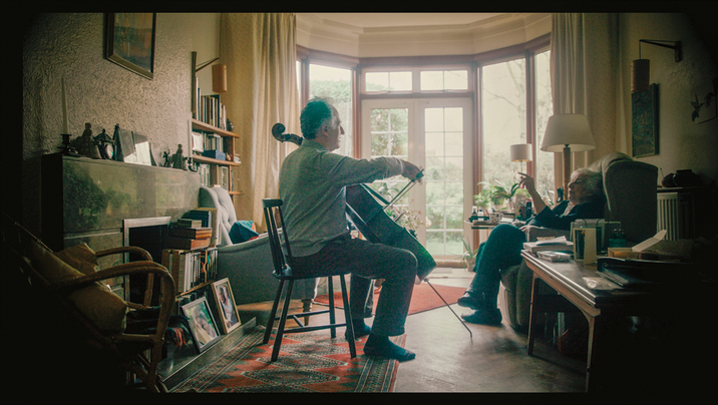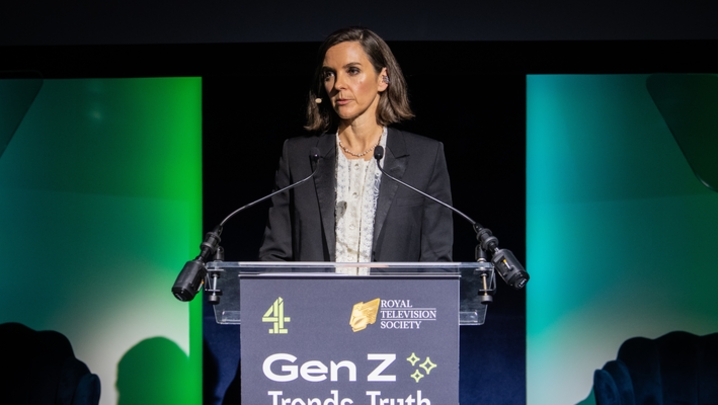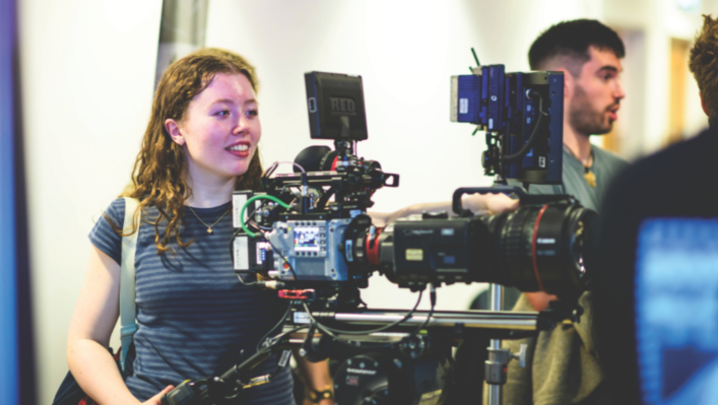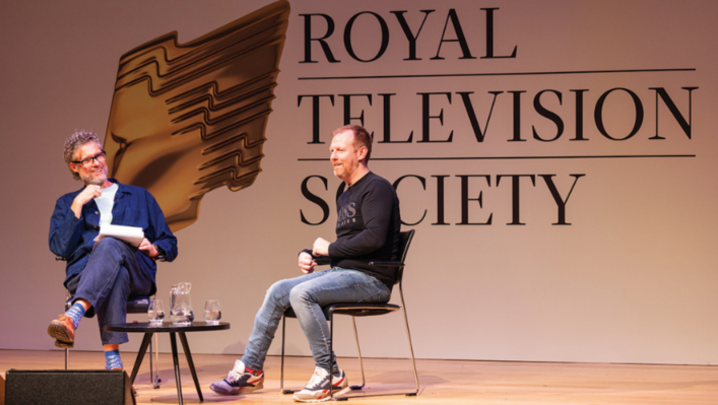Television distils a day of expert advice from leading TV practitioners at the RTS Student Programme Masterclasses 2021.
The RTS Student Programme Masterclasses drew a crowd of more than 300 in early November to hear four of the industry’s top talents talk about their careers and offer first-hand advice on how to make a start in television.
Kenton Allen, one of the biggest names in British comedy, offered the masterclass in scripted entertainment. The CEO of Big Talk is the producer of countless award-winning shows, including The Royle Family and Friday Night Dinner.
Allen said a producer is “first in and last out on any show”. He continued: “[You are] the mad person who thinks you can get something on the television.… You raise the money, pull all the crew together, make the show and deal with the problems when things go wrong.…
“You’re there right to the bitter end until the show’s on air.… Then you try to get the show recommissioned.… You’re sort of the custodian of other people’s creative endeavours and ambitions.”

(Credit: RTS/Paul Hampartsoumian)
Allen began his working life in radio and was happy to stay there until Jonathan Ross asked him to work on his pioneering Channel 4 chat show.
A change of tack took him to Granada TV in Manchester to make entertainment shows, where he met Caroline Aherne and Craig Cash, the writing team behind the The Mrs Merton Show and, subsequently, The Royle Family. Allen produced series of both shows.
A key part of the producer’s job is working with writers and Allen has worked with some of the best, including Robert Popper, the creator of Friday Night Dinner, and Stephen Merchant on current comedy/drama The Outlaws.
Discussing the producer’s relationship with writers, Allen said: “Fundamentally, you believe in the writer and the story. They’ve got [to have] something to say about something – it’s not just jokes. The ultimate judge is the audience.… You can just do your best guess of what is funny based on experience and taste.”
Comedy, Allen concluded, should “punch up, if you’re going to use comedy as a device to shine light on hypocrisy or whatever you think is wrong with the world… do not punch down on people who don’t need to have any more shit sent their way.”
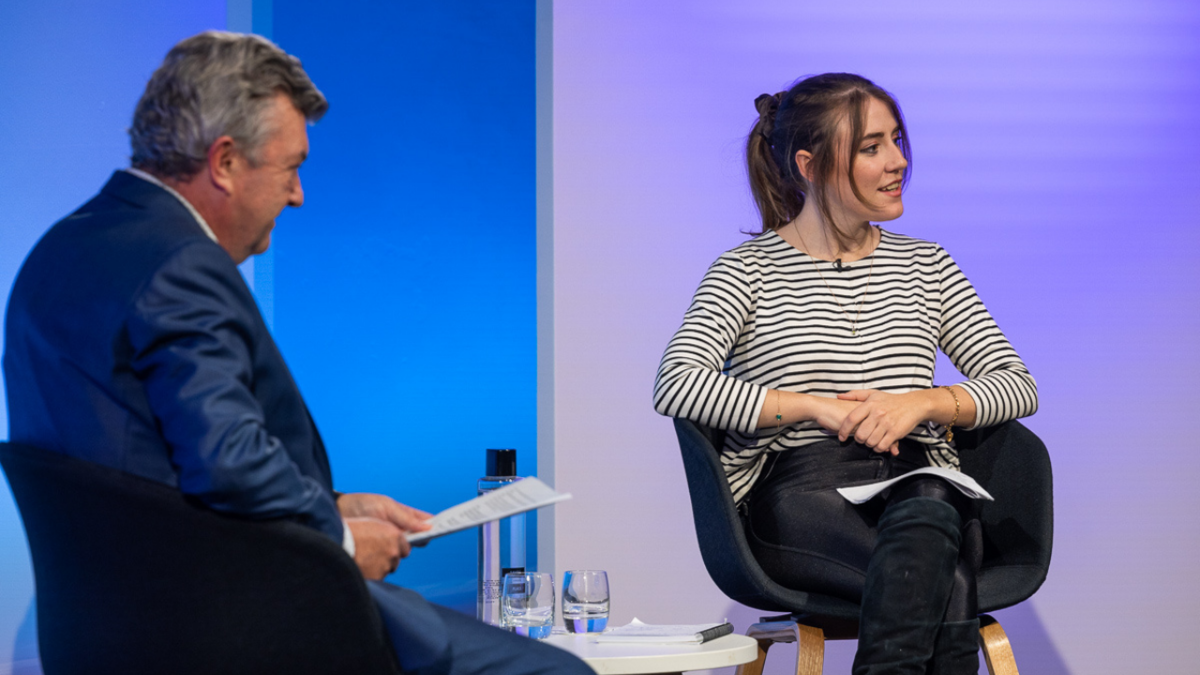
Marianna Spring, the BBC’s first specialist disinformation and social media reporter, offered the masterclass in journalism. At just 25, she has reported on conspiracy theories and online abuse for the BBC’s news programmes Newsnight and Panorama.
“I was one of those slightly weird kids that, aged eight, [watched] BBC World News on holiday because it was the only channel in English,” Spring recalled. At school, university (Oxford, studying French and Russian) and during a year of study abroad, she wrote for local and student papers, and, post-university, worked shifts at The Guardian.
Yet, she was rejected by the BBC’s graduate training scheme. Encouraged by Guardian journalist Alexandra Topping, Spring wrote to people she admired at the corporation. Newsnight anchor Emily Maitlis replied and she was offered some shifts on the programme, giving her a foothold at the BBC.
“It’s really good to find something you care about and you can offer in a way that didn’t exist before then. The BBC was getting to grips with social media investigations at that time.”
The student audience watched Spring’s Newsnight report on the return of Woolworths to the high street – fake news that spread quickly from Twitter to gullible national newspapers. The Twitter account, she said, had been created by a 17-year-old “who wanted to test how much brand recognition counts and how people who are nostalgic for something will share it online, and he very much proved his case”.
Spring covered social media disinformation during the UK 2019 and US 2020 elections – and has suffered online abuse, often on account of her youth, from conspiracy theorists and misogynists. “Social media has been a part of [my] life growing up.… Investigating and understanding it is intuitive,” she said.
Furquan Akhtar is a young writer who has moved rapidly from storylining episodes of Coronation Street to penning children’s dramas The Dumping Ground and Wolfblood, to writing episodes for ITV crime series The Bay and Paul Abbott’s Sky show Wolfe.
“Soap is a brilliant training ground but it’s also a place to tell prime-time stories in the most powerful way,” he said during his drama masterclass.

(Credit: RTS/Paul Hampartsoumian)
Akhtar, though, was determined to write his own scripts. His first effort, a radio play, won the BBC’s Alfred Bradley Bursary Award for new Northern writers. He went on to write three afternoon plays for Radio 4.
“I realised early on in my career that all the different parts of my identity – being Northern, working-class, Pakistani and Muslim – are an asset, because other people aren’t telling those stories,” he said.
“I love Fleabag, it’s one of the best things ever, but I’m not a posh, white woman from west London. I understand heartbreak and grief, those things are universal, so I tell those stories from my part of the world.”
Children’s TV, he said, was “a good place to get your first TV credit”. But to make the next move, Akhtar wrote a “spec” or sample script.
This script, which has “unlocked all the doors for me in the last couple of years”, tells the story of three British Asian siblings without “trauma, arranged marriages or terrorism…. It’s about joy…. [The script] is still in development and, hopefully, one day it will get made.”
Offering advice to the student writers in the audience, Akhtar said: “Write a script and send it – there are so many competitions that, it sounds awful to say, legitimise you and set you apart from other people.
“Until you have written a script that is complete and you’re proud of, you can’t really put yourself out there.”
Sanjay Singhal, who gave the documentary masterclass, was previously a BBC journalist, and worked as the corporation’s Washington producer for a decade. The 9/11 attacks happened during his final week and were a “traumatic and colossal story”, he said. “After that, I sort of felt I’d done it all – where else would you go in the world of news?”
Over the following 20 years, first at Dragonfly Film and TV, where he became MD, and then at his own indie, Voltage TV, Singhal has made high-profile documentaries. In The Plane Crash, which became a worldwide hit, a Boeing 727 was deliberately crashed into the Mexican desert.

(Credit: RTS/Paul Hampartsoumian)
Last year, Voltage’s series The British Tribe Next Door, in which Gogglebox star Scarlett Moffatt and her family moved to a Namibian village, took home an RTS award.
Many documentary-makers have a background in news, which can be hugely helpful. “You’ve got to be objective, truthful, sensitive and balanced – those are all the things you learn as a journalist,” said Singhal. “Then you add to those the documentary [elements] of character, emotion… and story arc.”
The audience watched a clip from Ant & Dec’s DNA Journey, in which the presenters travel to Ireland to follow their bloodlines. “I’m obsessed with making programmes that are mainstream, that reach as many people as possible,” he said. “There’s got to be room for auteurs… [with] subject matter that’s off-piste… but 95% of television isn’t like that.”
Offering tips to would-be documentary-makers, Singhal said: “The television industry is much bigger than it was; there are many more opportunities, companies and commissioners – the levels of production are unbelievable at the moment.”
He advised TV hopefuls to watch loads of telly (and other media) and, crucially, to critically analyse it – “I’m interested in people who… are inspired by creative ideas.” He added: “Shoot something, cut something… learn.”
Report by Matthew Bell. The RTS Student Programme Masterclasses were held on 4 November and chaired by Helen Scott (entertainment session), Steve Anderson (journalism), Boyd Hilton (drama) and Fozia Khan (documentary).



